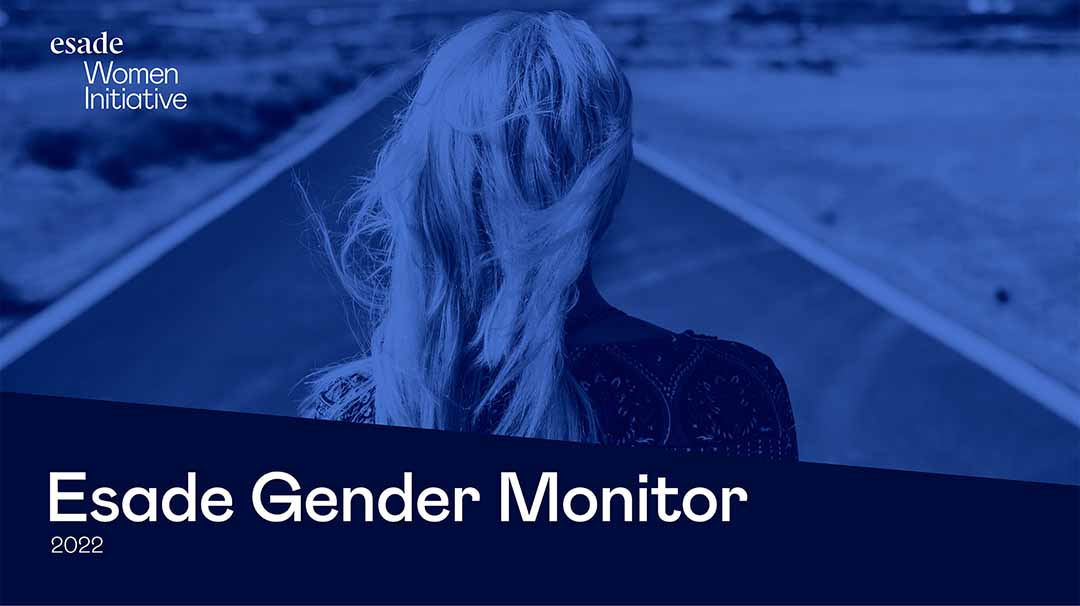Esade Women Initiative
Las medidas de igualdad de género de las empresas en España, cada vez más alineadas con las necesidades de las directivas

Aumenta al 72,5% el número de directivas que afirman que sus empresas cuentan con políticas que incluyen la igualdad de género en su estrategia
The gender equality measures taken by companies in Spain are increasingly in keeping with the needs of female executives. This is one of the main findings of the latest edition of the Esade Gender Monitor produced by the Esade Women Initiative which examines the opinions of almost 900 career women and female executives about gender balance in their companies. According to respondents, the policies implemented most in their companies, i.e., flexitime (20.7%), mentoring and sponsoring programs (14.3%) and management training (15.9%), tally with the ones they consider most appropriate for ensuring equal opportunities in the company. Unconscious bias training, however, is a measure sought after (13.3%) but not yet common in Spanish companies. The number of female executives who say that their companies have gender equality policies has also increased from 68.7% to 72.5% over the last two years.
According to 58.8% of the women interviewed, the pandemic has had a positive impact on their work-life balance; 72.5% feel it has not negatively impacted their promotion possibilities; and 46.2% think it will slow down the pace of progress in gender equality in society.
Shift in perception of gender gaps
One in four of the women surveyed for the report says that, in the last year, the fact they are women has not resulted in them facing barriers at work. However, those that have encountered such barriers mention unconscious bias (26%) as the most common obstacle in their everyday work and along the road to senior management. Specifically, they believe it is more difficult for them to be promoted than their male colleagues because the idea that “women prefer jobs that enable a better work-life balance” still persists (21.9%) or because their company still “assumes that women with children are not as committed to their career as men” (17.6%).
The main obstacles to gender equality mentioned in previous surveys, i.e., wage gaps and difficulties in achieving a work-life balance, have decreased. Whereas 44.7% of the women interviewed in 2016 mentioned the wage gap as one such obstacle, only 9.7% did so in 2022; and difficulties in striking a work-life balance was mentioned by 24.18% in 2016 and by 17.7% this year.
According to Patricia Cauqui, joint author of the study and academic director of Gender Balance and D&I programs at Esade, “it’s surprising that although 14% say that under the current employment system they have more difficulties with their work-life balance than their partner, 44.4% say it is as difficult for their partners as for them, and 28.5% think it is more difficult for their partners. These replies, in comparison with those of previous years, suggest that difficulties with work-life balance are no longer a matter of gender but of a desire to live and work in a different way that is not related to gender.”
On the other hand, as emphasized by Eugenia Bieto, director of Esade Women Initiative and joint author of the report, “one noteworthy detail is how well career women’s associations were rated in the survey as agents of social change for equality, with very similar ratings for the role these associations should have (9.2) and the role they actually have (8). It’s also interesting that although a lack of formal and informal support networks continues to be the main barrier to women entering senior management (25.1%), the time that women spend networking has increased considerably over the last year. Some 19.7% regard networking as an essential part of their job and 64.7% spend time on it but would like to do it even better.”
Changes yet to reach senior management
The measures implemented by companies are increasingly in keeping with those required for equality. Nonetheless, the number of women surveyed who strongly or totally agree with the statement “In Spain there is a tendency to prefer men for senior management positions” has climbed from 48.1% in the previous edition to 61.4% this year, compared to 4.7% who disagree. Companies are making progress in implementing measures to enable equality, but these measures have yet to affect senior management jobs.
